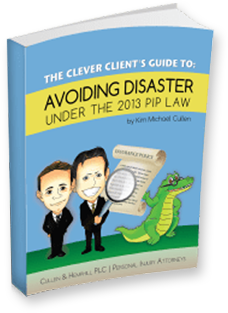An article in the Los Angeles Times piqued my interest recently, as I wondered about the implications of allowing the Plaintiff in a personal injury or wrongful death case to sue the physician of an elderly woman who caused a serious crash the led to the wrongful death of her passenger.
According to the article, an 86-year old woman from Southern California, and her 90-year old boyfriend/passenger were driving home after a Costco shopping trip when she made an improper left turn directly in the path of another vehicle. There was a huge impact, with the 86-year old woman suffering a traumatic head injury, and her 90-year old boyfriend suffering injuries to his pelvis, lungs, and other internal structure that led to his death six weeks later.
The 90-year old man’s surviving children have taken the position that the 86-year woman was suffering from either dementia, or Alzheimer’s Disease, or some combination of them to such an extent that her physician should not have cleared her to drive. As a result, there was a trial this week in Orange County, California, to determine whether the 86-year old woman’s treating geriatric physician could be held liable for her boyfriend’s wrongful death.
Under California law, doctors are required to report to the Department of Motor Vehicles any patient who has a disorder that is characterized by lapses of consciousness, as well as Alzheimer’s disease and other disorders. Physicians have the discretion to report other disorders that might impact safe driving.
The evidence in the Orange County case is far from clear. There is evidence that the driver was increasingly forgetful and that she was prescribed an Alzheimer’s drug well before the accident. However, family members and friends say that the driver was functioning as well as she ever did, and had no idea she was on medication at all.
Could a lawsuit like this one happen in Florida? Maybe. Section 322.26(2), Florida Statutes, states that any physician that has any knowledge of any licensed driver’s or applicants disability to drive is authorized to report such knowledge to Department of Highway Safety and Motor Vehicles. If such a report is made, it must be in writing and must describe the mental or physical disability that could affect the driver’s driving. Thus, it appears that a physician is not required to report anything.
However, I see nothing in the law that says that a physician cannot be held liable if he fails to make a report about a driver who has Alzheimer's, dementia, or some other driving disability related to confusion or age. In fact, I believe a physician could be liable in Florida if the patient showed several signs of confusion or inability to drive safely and the physician does nothing.
A study done in 2005 by the Florida State University College of Engineering indicates that older drivers seem to cause the most serious accidents due to misjudging speeds, failing to observe vehicles around them, disregarding traffic signals, improper left-hand turns, and sudden loss of control of the vehicle. The author of the study attributed each of these behaviors to the effects of age.
As Florida’s (as well as our nation’s) population continues to age, this is going to be a growing issue. It would likely be wise for physician reporting to become required, instead of discretionary. It might also be helpful for a state medical panel to better define for physicians that kinds of traits or disabilities to consider for elderly or disabled drivers.
What do you think?



